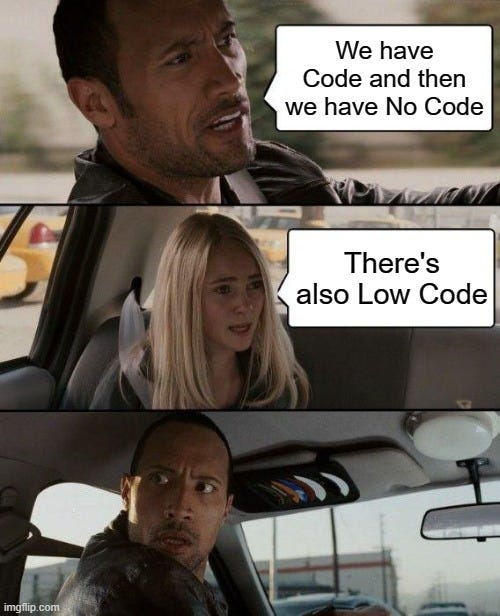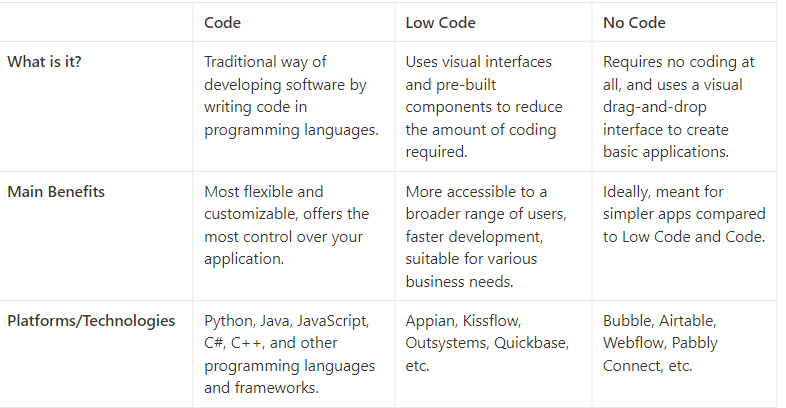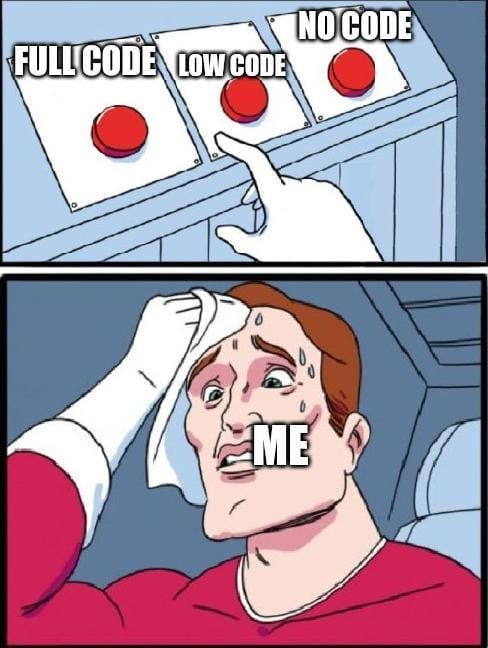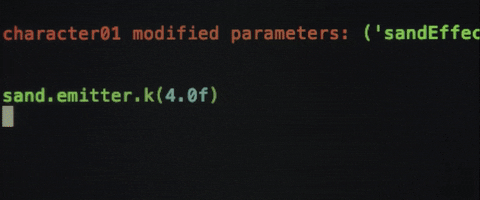Code vs. Low Code vs. No Code: How are they different??
Gone are the days when you begged your cousin to teach you coding so that you could build a website or app to feature in your resume or portfolio.
Why?
Because Low Code and No Code are here to rescue you!
“Wait, we know about Code and also heard about No Code but…”
But how are they really different from each other? Let’s find out!
As their names suggest, all of these three concepts involve what they say - complete coding, a bit of coding, and no coding at all!
But there’s more to them other than what their names suggest. The actual concepts go deeper when it comes to the platforms, technologies, and their use cases.
In the table below, we have attempted to explain the differences in the simplest way possible.
“Okay, I got the gist. But, how do I CHOOSE between the three??”
We understand the confusion that you might be facing in choosing from among the three.
Here are the pros and cons for each with what some of each of the tools under these three do.
Code
Platforms/Technologies
As discussed earlier, there are many programming languages and frameworks like Java, JavaScript, Python, Node.js, and many more. Each of these comes with its own use cases but many of these programming languages can be used to build any type of website or application.
Low Code
Platforms/Technologies
Appian: A Low Code platform for building enterprise applications.
Kissflow: A versatile Low Code platform for building business process applications and automating workflow.
OutSystems: A high-performance Low Code platform for building mission-critical applications.
Quickbase: A user-friendly Low Code platform for building custom business applications and automation for productivity.
No Code
Platforms/Technologies
Bubble: Bubble is a powerful and popular No Code platform used by over 3 million users (as of August 2023) to create digital applications without the need for coding expertise.
Airtable: Airtable is a versatile No Code platform that combines the simplicity of a spreadsheet with the complexity of a database, making it easy to organize data and build customized solutions.
Webflow: Webflow is a user-friendly No Code platform that empowers users to design and launch responsive websites and web applications without writing code.
Pabbly Connect: Pabbly Connect is a No Code automation platform that allows users to create seamless integrations between different apps and automate workflows effortlessly.
Some Takeaways
The complexity of your application: If you need to create a complex application with a lot of features, then code is the best option. However, if you need to create a simpler application, then Low Code or No Code may be a better option.
Your budget: Code-based development can be expensive, as you need to hire skilled developers. Low Code and No Code platforms can be more affordable in those regards but you still have to buy a subscription and cater to your budget.
Your technical expertise: If you have coding knowledge, then code is the best option. If you don't have coding knowledge or don’t want to hire a developer, then Low Code or No Code may be a better option.
Your time constraints: If you need to develop an application quickly, then Low Code or No Code may be a better option. Code-based development can take longer.
Remember that no matter what you choose, at the end of the day - it all boils down to your expertise and interest!!
Do not miss any biweekly updates on this exclusive No Code newsletter, subscribe today :)













